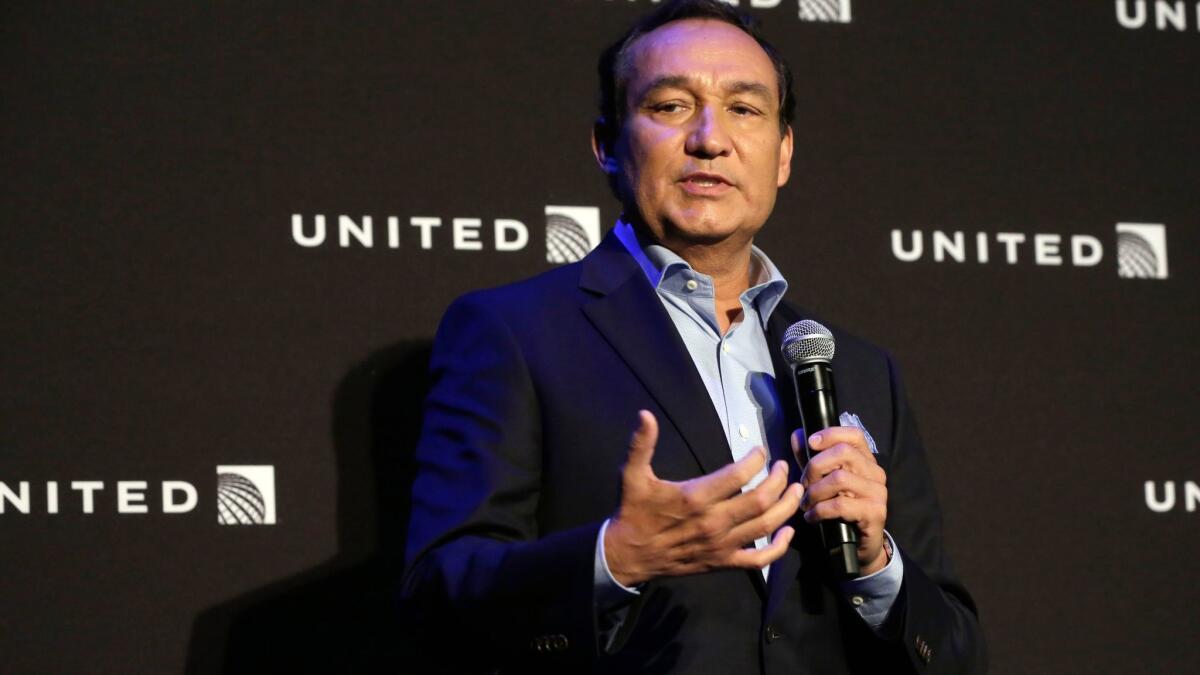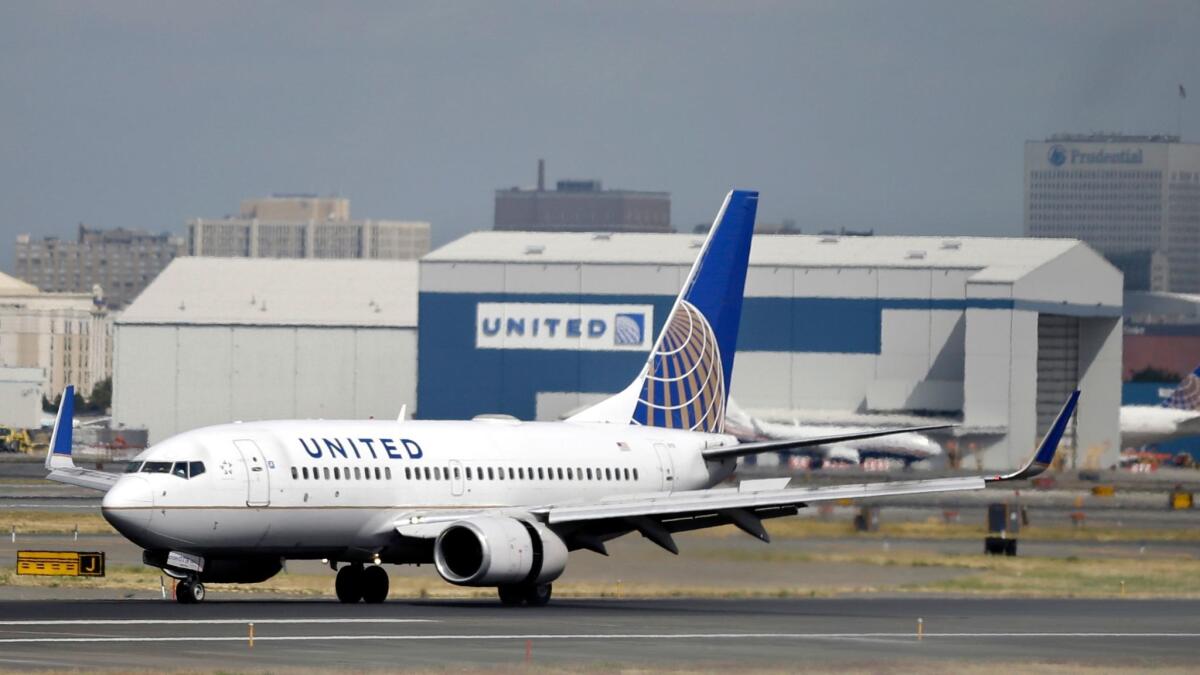Before apologizing on Tuesday, United tried two unsuccessful tactics to quell its public relations crisis

- Share via
Public relations professionals say United Airlines’ move to drag a bloodied passenger off of a flight looked like “something straight out of a horror movie.” But experts in crisis reaction say the company’s initial response may prove scarier still.
In acknowledging Sunday’s incident, in which airport police yanked a passenger off of a plane in Chicago to make room for company personnel, United's chief executive, Oscar Munoz, on Monday apologized only for having to “re-accommodate” passengers on the flight bound for Louisville, Ky. Even as footage of the encounter spread like wildfire on social media, Munoz doubled down on defending his company.
In a prepared statement, he said United employees “followed established procedures for dealing with situations like this," and accused the passenger of being “disruptive” and “belligerent.”
Such a defense surprised public relations experts queried by The Times, who said United had embraced two common but ineffective crisis responses — while shying away from the only reaction likely to quell the controversy. It wasn’t until Tuesday, two days after the incident and as United shares slipped on Wall Street, that Munoz issued a broad apology.
Here’s how United tried to handle the public fury — and where public relations professionals say it went wrong.
Issue a non-apology
Companies in the wrong often issue a non-apology — an empty statement that acknowledges an event but shirks responsibility.
This was United’s first resort, according to Ed Zitron, chief executive of PR firm EZPR, who described the airline’s initial response as a failure by committee.
“Here was a bunch of people who got together and failed to show any compassion and humanity,” Zitron said of United. “Maybe it’s a really bad interpretation of the phrase, ‘When you’re going through hell, keep going.’ A lot of CEOs and companies are terrified of apologies. They don’t want to look weak. But they apparently don’t mind looking horrible."
In refusing to admit fault — or even acknowledge that a passenger was hurt on its flight — this particular non-apology went beyond a typical brand gaffe, Zitron said.
"Since 9/11, one of the key things of airlines is safety, and the one thing they’ve gained here is the literal image of what can happen to you on United Airlines,” Zitron said.
Even if United was adamant about not apologizing, it could have at least acknowledged that the situation got out of control, and that what happened to the passenger was unacceptable.
“I want to know why no one’s statement involved the safety of that man,” Zitron said. “Why didn’t anyone say anything? They could have said 'this is a legal minefield and we do not have all the details, but we hope the man is OK.’ That would have been 100 times better than what they actually said."
Blame the passenger
A non-apology would have been bad enough, PR experts said. But United then fanned the flames by casting the passenger as a “belligerent” customer who “refused to comply."
“This was a catastrophic move for them,” said Zitron, “not just on the level of bad human beings, but anyone ever flying on United should now fear whatever ‘established procedures’ United has up its sleeves."
Not that blaming the passenger has ever worked for United.
Last month, when the airline stopped two teenage girls from flying because they were wearing leggings, United, rather than apologize, tried to rationalize its actions.
“They said they were family members of employees and had to adhere to a dress code,” said Nicole Ferry, executive director of strategy at branding firm Sullivan. “But to Twitter and everybody else, it just looked like they were punishing [teenage] girls for wearing leggings."

Apologize
Any company can bounce back from a PR crisis, but apologizing is often the first step.
“They could have come out and said the behavior was not living up to their brand or their values,” Ferry said. “They talk about flying the friendly skies. Well, here was a clear brand behavior that did not live up to their promise."
Despite United digging its heels into the ground, PR experts had said it wasn’t too late for the company to apologize.
“They can put Munoz back on TV and say, ‘We reacted quickly. I did not make the right decision in what I said. I did not deal with this in a way that shows compassion and humanity. This is not what we support,’” said Zitron.
And after relentless backlash from customers, a stock price that plunged 4% in the wake of the incident, and a thorough skewering on social media, that’s exactly what United did Tuesday.
"I deeply apologize to the customer forcibly removed and to all the customers aboard. No one should ever be mistreated this way,” Munoz said in a statement. "I want you to know that we take full responsibility and we will work to make it right. It's never too late to do the right thing."
UPDATES:
12:45 p.m.: This article was updated to include a new apology from United Chief Executive Oscar Munoz.
This article was originally published at 11:20 a.m.
Inside the business of entertainment
The Wide Shot brings you news, analysis and insights on everything from streaming wars to production — and what it all means for the future.
You may occasionally receive promotional content from the Los Angeles Times.








